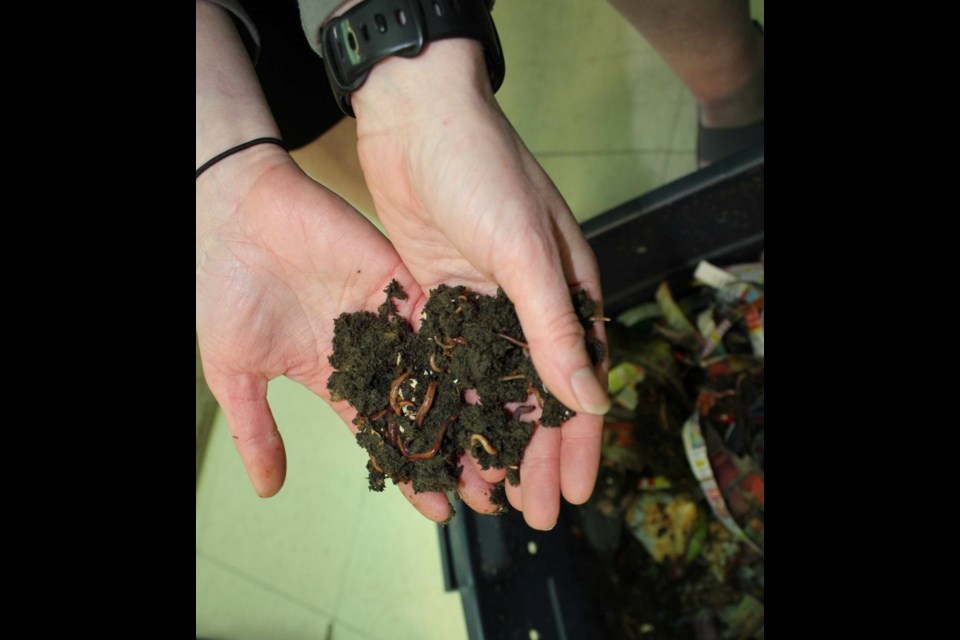We’re told we need to take better care of planet Earth, but what can each person do? Two Grade 5 classes taught by Jane Chandler and Regan Brereton-Waller (Ms. B-W) are delving deeply into a growing project this spring. Hands on experience is giving these Virden Junior High students the sense that there are practical, sustainable ways to help planet Earth.
An eye-catching system of growing plants, grow lights, a fan and tubes to redistribute the heat, make up a growing project on the second floor of VJH. It’s tended by students. The plants were started in order to be transplanted into a community garden outside in the school yard. However, with a late spring (threatening frost until this week), some produce grew all too well.
“Our lettuce was, very big. It took up a whole container. So, Ms. Chandler cut a bunch off and we had a salad. She brought the lettuce, she washed it and we all brought something to have on it,” explained one student named Julie.
Ms. Chandler said it was satisfying for the students to eat what they’d grown. “It was called a ‘saladbration’. Students brought chicken, fetta cheese, mushrooms…” to top their salads.
Ms. B-W has helped several grade five classes over the years learn to compost with red wigglers. When the Empire-Advance visited, both classes assembled in her classroom to discuss their sustainability project. There was no shortage of enthusiasm as class members answered questions and in some cases shared their own environmentally sustainable ideas.
They told of the class’s red wigglers - composting worms that make soil from scraps. It’s called ‘decomposition’, says David.
Austin explained that ‘black gold’ referred to worm poop, which is great fertilizer for plants. “Because it’s really good for our plants, it’s gold to our plants,” stated another student. “There’s a lot of nutrients in it,” added Evan.
“Where are we going to put our (worm) dirt?” Ms. B-W asked the class. Brock: “In the garden. In our back playground we have four big community gardens.”
The planter boxes were previously shipping boxes for combine headers. “We got the boxes and made gardens in them,” said Ms. B-W. “In the summer we can come to the gardens and take produce from them. Our one request is that if you take some produce, can you pick a weed?”
She explains, “We’re really lucky, we partner with the (Funshine) daycare. They look after it for us. We get to be on summer holidays.”
To be kind to the Earth, both classes have studied other ideas as well - how used chop sticks can become table tops and drink can tabs turned into designer purses.
The classes have been supplied with sustainability carts where compost scraps are first gathered in a bucket before they are distributed to the worm buckets. On the cart re-useable washable cloths for wiping up spills in the classrooms, and reusable drinking cups are stored.
“Our school has been working hard towards more sustainability including school-wide composting,” says Ms. B-W. “I also have three students in my classroom that have independently written to the town of Virden about starting a town composter.”




